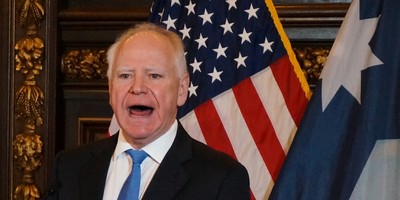The world of high finance was still in full flight in February 2007. The cracks in the mortgage market had not yet begun to show and Stephen Schwarzman's Blackstone Group had just completed its $39 billion purchase of Equity Office Properties in what was the largest leveraged buyout ever.
This article was orginally published at Mises Daily: Tuesday, August 23, 2011
There was plenty to celebrate, so Schwarzman threw himself a party for his 60th birthday, a 3 million dollar affair for 350 of the billionaire's closest friends, including Barbara Walters, CNBC money honey Maria Bartiromo, the Donald, Cardinal Edward Egan, and former New York governor George Pataki.
It was lobster, filet mignon, and baked Alaska for everyone, washed down with expensive vino, with comedian Martin Short as emcee. Composer-pianist Marvin Hamlisch played a number from A Chorus Line. Patti LaBelle sang a song written for the birthday boy, and Rod Stewart sang a medley of his hits, reportedly for a fee of a million dollars.
A year and half later, in September of 2008, it appeared the financial world was coming to an end. Lehman Brothers filed for bankruptcy, the once "bullish on America" Merrill Lynch fell into the arms of Bank of America, and AIG held out its tin cup in need of a quick $40 billion from the Federal Reserve.
The nation's M2 money supply was an unadjusted $7.8 trillion that month while Ben Bernanke, Tim Geithner, and Hank Paulson were working weekends to patch up their wounded Wall Street friends. Meanwhile, it didn't seem all that bad on Main Street with unemployment at 6.1 percent, despite the economy losing 605,000 jobs in the first eight months of the year. Home values had fallen 7.1 percent from the previous year, but few were underwater yet.
Recommended
But the Fed chair was not interested in Main Street. On September 10, 2008, the Fed's balance sheet totaled $927 billion; by October 1 it had grown to $1.5 trillion; and on New Years Eve, the Fed rang in the New Year with $2.2 trillion in assets.
All this purportedly so that when normal folks used an ATM machine, their money would spit out on command. It all worked so well that Bernanke was TIME's Person of the Year for 2009, "providing creative leadership [that] helped ensure that 2009 was a period of weak recovery rather than catastrophic depression," Michael Grunwald wrote.
Two years on, one wonders if Grunwald realized that the weakness would continue indefinitely.
The M2 money supply has marched steadily higher to the $9.2 trillion mark last month. The monetary aggregates have gained traction, increasing at a 15.3 percent clip in the past three months.
Increases in money aren't sprinkled from the sky, floating indiscriminately into whoever's hands are in the right place at the right time. Money-supply increases occur through the commercial banking system and Federal Reserve. Those who receive the money first benefit at the expense of those receiving the money last.
"The fiat dollar is an 'elite' system," Jim Grant told the Wall Street Journal recently, "and Wall Street is its supporting 'interest group' — those nimble, market-savvy, plugged-in folks know how to shuffle assets and exploit cheap funding from the Fed to leverage up their profits and soften the downside."
After plunging to 666 on the S&P in March of 2009, the stock market has recovered up until the recent volatility, with that same index reaching over 1,350 earlier this year. Wall Street paid out $27.6 billion in bonuses in 2009 and $20.8 billion last year. Mergers and acquisitions have been all the rage and leveraged buyouts can't be too far behind. The demand for trophy office space has even heated up. But Craig Karmin, writing for the Wall Street Journal, worries the trophy-property bubble is already overdone.
An index of commercial-property values by Green Street Advisors, which is tilted toward high-end and trophy buildings, has risen more than 45% from its 2009 lows and is only 10% below its all-time highs. Although the index has been flat for the past two months, the run-up nevertheless raises questions about whether the surge in prices is getting ahead of sluggish economic fundamentals.
Bankers have been stingy toward lending to commercial businesses and private individuals, with total loans falling 3.4 percent from last year at the end of the first quarter. At the same time, bankers can't get enough of the government's paper, buying $500 billion in Treasury and agency securities during the past two years, reports Bud Conrad, economist for Casey Research. Bankers are returning the favor, "using their bailouts to help the government, albeit somewhat indirectly, using money from the Fed."
So while all this money has rushed into stocks, real estate, and especially government bonds, by the looks of it, none has found its way to Main Street except in the form of higher prices. John Williams at Shadowstats.com says prices are increasing at a 10+ percent clip. And while the Fed's QEs were supposed to stimulate hiring, unemployment soared in 2008 and '09 and hasn't recovered. According to Williams's numbers nearly one in four Americans is out of work.
While Williams says consumer prices are roaring upward, the government claims there has been no increase in the consumer price index from the third quarter of 2008 to the third quarter of 2010, so those receiving Social Security have seen no cost-of-living increase.
A record number of Americans now look to Uncle Sam to put food on the table. The US Department of Agriculture just announced that 46 million people — 15 percent of the population — are receiving government aid to buy their groceries.
And now the primary asset of the middle class, their home, has become a liability for 28 percent of homeowners according to real-estate-data provider Zillow. "We get tired of telling such a grim story, but unfortunately this is the story that needs to be told," the company's chief economist Stan Humphries told Bloomberg. It's likely more homeowners will be underwater if Robert Shiller is right. He believes home prices may fall another 5 to 10 percent.
Bernanke's crisis policy was called into question by Richard von Strigl in Capital & Production. Strigl pointed out that the creditworthy will not be interested in borrowing in a crisis. But those industries forced to liquidate during the crisis are all too eager to borrow.
However, satisfying this demand implies delaying the liquidation of the crisis, lengthening and strengthening it. For it is essential to this situation that a significant demand for credit by those who would like to work towards continuing the boom, that is an "unhealthy" demand for credit, exists along with a significantly reduced demand for new sound investments.
While times are tough for normal folks, Wall Street royalty had another birthday party to attend recently. Private equity billionaire Leon Black celebrated his 60th with a couple hundred folks at his oceanfront estate in Southampton. Elton John earned $1 million for an hour-and-a-half of serenading the likes of Vera Wang, Mayor Michael Bloomberg, Senator Chuck Schumer, Martha Stewart, and Howard Stern, who bellied up to a buffet featuring a seared-foie-gras station.
"While much of the nation's economy has struggled to recover from the financial crisis," Peter Lattman writes for the New York Times, "Mr. Black's firm — and the rest of the private equity industry — has snapped back."
Blackstone's Schwarzman attended the Black affair along with Goldman Sachs's Lloyd "we do God's work" Blankfein. "Your 60th got us into the financial crisis," Mr. Blankfein is said to have told Schwarzman. "Let's hope this party gets us out of it."
Not likely, Mr. Blankfein. The Fed's Wall Street band-aid looks to be peeling off. Another 60th-birthday blowout is signaling another financial blowup.

























Join the conversation as a VIP Member